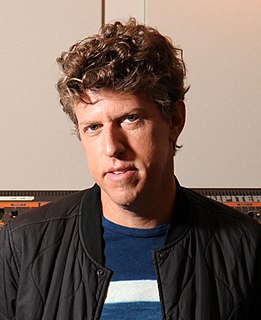A Quote by Greg Kurstin
I try not to force my sound on everybody. I try to yield unto each artist and... I try to just support that sound rather than force a sound that might not fit.
Related Quotes
The Marshall guitar amplifier doesn't just get louder when you turn it up. It distorts the sound to produce a whole range of new harmonics, effectively turning a plucked string instrument into a bowed one. A responsible designer might try to overcome this limitation - probably the engineers at Marshall tried, too. But that sound became the sound of, among others, Jimi Hendrix. That sound is called electric guitar.
If there are sound reasons or bases for the points you demand, then there is no need for violence. On the other hand, when there is no sound reason that concessions should be made to you but mainly your own desire, then reason cannot work and you have to rely on force. Thus using force is not a sign of strength but rather a sign of weakness.
When we sit in meditation and hear a sound, we think, 'Oh, that sound's bothering me.' If we see it like this, we suffer. But if we investigate a little deeper, we see that the sound is simply sound. If we understand like this, then there's nothing more to it. We leave it be. The sound is just sound, why should you go and grab it? You see that actually it was you who went out and disturbed the sound.
I'm very interested in vertical space.I want the players to listen to their sound in such a way that they hear the complete sound they make before they make another one. So that means that they hear the tail of the sound. Because of the reverberation, there's always more to the sound than just the sound.
For me, even if I'm singing to a very large audience, like in 'The Sound of Music Live' or in the 'She Loves Me' broadcast, I try to imagine that I am just singing to each individual. It doesn't change my energy other than being perhaps a bit more nervous. I try to sing to each person and right into their individual heart.



































